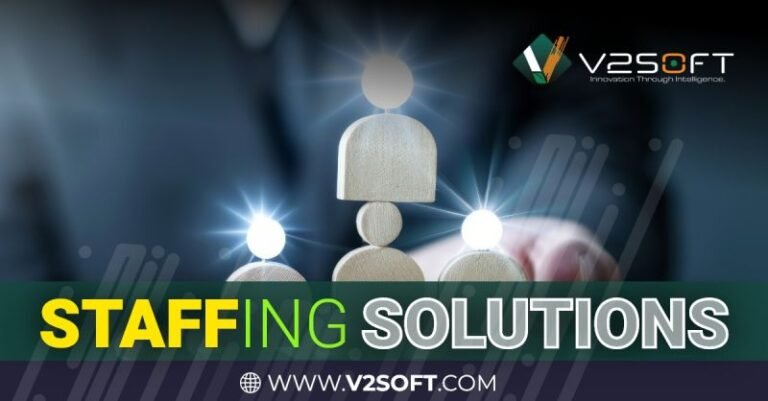In today’s hyper-digital era, enterprises generate massive volumes of data across a multitude of systems—CRM platforms, ERP systems, marketing channels, customer support tools, and external APIs. While data is an organization’s most valuable asset, its real power lies in how effectively it’s integrated, analyzed, and transformed into actionable insights. Unfortunately, most enterprises struggle with fragmented, disconnected data environments, also known as data silos.
These data silos are often the result of legacy infrastructure, departmental isolation, and lack of a cohesive data strategy. They hinder collaboration, slow decision-making, and obstruct innovation. The solution to this persistent challenge lies in adopting intelligent integration strategies, and that’s where AI Consulting Services become critical. By leveraging artificial intelligence, machine learning, and automation, AI Consulting firms guide organizations in connecting siloed data streams and transforming them into unified, intelligent systems capable of real-time decision-making.
Understanding the Impact of Data Silos on Business Intelligence
Data silos occur when information is stored in disparate systems that do not communicate with each other. In enterprises, this typically manifests as separate data pools across sales, marketing, operations, HR, and finance departments. Each team might be using its own tools, databases, and analytics methods, which prevents a comprehensive view of organizational performance.
The consequences of data silos are far-reaching. Marketing teams may not see sales data; customer service may lack access to previous transactions; executives may base decisions on incomplete or outdated insights. This fragmentation can lead to misaligned strategies, redundant efforts, and lost revenue opportunities.
Enterprises that wish to become truly data-driven need to eliminate these barriers. They need to unify their information systems through advanced AI development strategies that not only integrate data but also analyze it intelligently to derive contextual insights. This transformation isn’t easy—but with expert AI Consulting Services, it becomes both achievable and scalable.
How AI Consulting Services Enable Intelligent Data Integration
AI Consulting Services begin by conducting a comprehensive audit of an organization’s existing data architecture. This involves identifying all data sources, data types, integration methods, and storage systems. The goal is to map how data flows across the business, where bottlenecks exist, and where critical insights are being lost.
Once the landscape is understood, consultants deploy intelligent data integration frameworks. These frameworks use AI and machine learning algorithms to automate data ingestion, cleaning, transformation, and classification across systems. Unlike traditional ETL (extract, transform, load) processes that are linear and rigid, AI-powered integration adapts and learns over time.
Through AI Consulting Services development, businesses can create intelligent pipelines that continuously pull data from different departments, harmonize formats, detect anomalies, and provide a unified, real-time dashboard to decision-makers. This creates a single source of truth—a centralized repository from which insights can be extracted, decisions made, and customer experiences personalized.
Unlocking Predictive Insights with Integrated Data
Once data is integrated, the next step is turning it into predictive intelligence. AI Consulting firms specialize in applying machine learning models to unified datasets, enabling forecasting and scenario simulation. This gives organizations the ability to anticipate trends, detect risks early, and make proactive decisions.
For instance, a retail business with siloed customer data across its web store, in-store POS system, and CRM may struggle to understand customer behavior. But once integrated, AI can analyze purchasing patterns, geographic preferences, and return rates to predict future sales, recommend personalized promotions, and reduce churn.
This shift from descriptive to predictive insights is what transforms data from a passive asset into a competitive weapon. By partnering with a trusted AI Consulting Solution, enterprises gain access to algorithms that can do far more than surface trends—they can explain them, simulate outcomes, and recommend optimized actions.
Enhancing Digital Infrastructure Through Custom Software Development
To support intelligent data integration, organizations often require tailored digital infrastructure. Off-the-shelf platforms may not support unique data formats, real-time syncing, or scalable AI applications. That’s why custom software development plays a vital role in the data integration journey.
Through AI Consulting Services development, enterprises can build custom applications, APIs, and middleware that act as the backbone of intelligent data systems. These tools ensure that structured and unstructured data from various sources—including internal databases, cloud services, IoT devices, and third-party apps—are accurately collected and aligned for AI processing.
For example, a logistics company might need custom data connectors to integrate sensor data from delivery vehicles with customer orders and traffic data. A generic solution may not support such niche requirements—but with customized software guided by AI Consulting, this level of integration becomes seamless and robust.
Building AI-Powered Mobile Experiences with App Development
In the mobile-first world, data integration must extend to the app ecosystem as well. Enterprise mobile apps, whether customer-facing or employee tools, generate valuable behavioral data that often remains untapped. Through expert app development strategies backed by AI Consulting, organizations can build mobile platforms that not only collect but intelligently process user data in real time.
Apps equipped with embedded machine learning models can offer hyper-personalized experiences based on user behavior, preferences, and contextual data such as location and time. Moreover, app-generated data can be integrated with enterprise systems to enrich customer profiles, improve service delivery, and optimize internal workflows.
When combined with AI-driven backend systems, these mobile applications become dynamic interfaces for decision-making. AI models can recommend actions, highlight anomalies, and even automate routine tasks. This level of intelligence—enabled by expert AI Consulting Services—elevates both user experience and business performance.
Transforming Web Platforms with AI and Web Development
Similar to mobile platforms, web portals also play a crucial role in enterprise data strategy. They act as both information sources and customer interaction points. Web development projects, when guided by AI Consulting, can transform traditional websites and portals into smart platforms that adapt content, predict user intent, and surface real-time insights.
Integrated with backend AI models, web platforms can gather detailed user interaction data and instantly feed it into the broader analytics ecosystem. This enriches the company’s understanding of customer behavior and allows marketing, sales, and support teams to act accordingly. Through AI development expertise, websites can also include AI chatbots, recommendation engines, and behavioral analytics dashboards—all powered by integrated, intelligent data systems.
This seamless data flow ensures that no matter where a user interacts—mobile, web, or offline—the experience is personalized, coherent, and optimized based on unified insights.
Cost Optimization: Managing the AI Software Development Cost
One of the common misconceptions around enterprise AI initiatives is that they’re prohibitively expensive. While it’s true that AI development involves investment, the AI software development cost can be significantly optimized when approached strategically. AI Consulting Services help businesses avoid unnecessary expenditures by focusing on business outcomes and leveraging reusable components.
For example, instead of building every AI model from scratch, consultants might use transfer learning to customize pre-trained models. They also bring in proven integration architectures and best practices that reduce development time and improve performance. By phasing development based on ROI potential, they help businesses extract value early and reinvest in future phases.
Moreover, eliminating data silos and automating data workflows reduces the manual effort spent on reporting, reconciling data, and decision-making. These operational savings often outweigh the initial development cost, turning AI into a high-yield investment.
Automating Intelligence: How to Build AI Agent Business Capabilities
As businesses mature in their AI adoption, the next frontier is automation through AI agents. These are autonomous software systems designed to perform tasks such as data monitoring, campaign management, lead scoring, and anomaly detection—without continuous human oversight.
To build AI agent business models, organizations need both technical and strategic expertise. AI Consulting Services provide this by helping companies define the scope, design agent behavior, and train models based on integrated data. These agents continuously learn from the environment, update their decision rules, and act faster than human teams.
Imagine a customer service AI agent that automatically escalates support tickets based on sentiment analysis and customer value—or a marketing agent that adjusts ad spend in real time based on campaign performance. These capabilities represent the next level of enterprise intelligence and are made possible only when integrated, high-quality data is available.
Real-Time Decision Making and Competitive Advantage
The real power of data integration lies in enabling real-time decision-making. In fast-paced industries like finance, healthcare, and e-commerce, being able to act instantly on emerging trends, customer actions, or operational issues is a game-changer.
AI Consulting Services help organizations achieve this by implementing stream processing architectures that analyze data as it arrives. Combined with AI algorithms, these systems detect changes, trigger alerts, and recommend actions—all within seconds. This agility leads to faster time-to-market, reduced risks, and higher customer satisfaction.
In a world where competitors are only a click away, businesses that can react in real time and predict market movements before they happen enjoy a significant edge. With expert AI Consulting, this capability becomes embedded into the fabric of the organization.
Conclusion: The Path from Silos to Synergy
The journey from fragmented data environments to integrated, intelligent ecosystems is one of the most transformative paths an enterprise can take. It enables agility, fosters innovation, and delivers measurable value across departments. Yet, this transformation requires more than just technology—it demands vision, strategy, and specialized expertise.
This is where AI Consulting Services prove invaluable. By guiding businesses through every phase of data integration—from assessment to architecture, from custom software to AI automation—consultants ensure that organizations extract the full value from their information assets.
Through the support of a robust AI Consulting Solution, enterprises can unify their digital infrastructure, reduce the AI software development cost, and empower both users and systems with intelligent, real-time insights. Whether it’s through app development, web development, or custom software development, data becomes more than just a resource—it becomes a strategic asset that fuels future growth.
By investing in AI Consulting Services development, organizations are not just solving the problem of data silos. They are preparing to lead in an era where intelligence, speed, and precision define market leadership.





